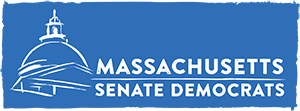With the delta variant surging, some Mass. lawmakers and health experts want rapid COVID-19 tests to be widespread — and free

Nik DeCosta-Klipa | Boston.com | August 18, 2021
Massachusetts has made rapid COVID-19 tests available to local schools and boards of health, in the hopes of making it easier to find out if residents are infected without the disruption of quarantining while they wait for a result.
But with the delta variant driving up COVID-19 rates, some say Gov. Charlie Baker’s administration shouldn’t stop there.
With an open letter this week, a group of Massachusetts state lawmakers and health experts are calling on Baker to use hundreds of millions in federal pandemic relief and state funds to make rapid COVID-19 antigen tests — which deliver results within 15 minutes — freely available across the state, from everywhere from grocery stores to transit stations to churches to libraries.
“Our state’s pandemic response continues to rely too heavily on PCR tests, which are expensive, require lab equipment and trained personnel to administer, are inconvenient and often inaccessible for many families, and do not produce timely results,” the letter said, adding the the current approach “is impractical for the frequency of widespread testing required to keep pace with the virus as it mutates.”
The letter was led by state Rep. Tami Gouveia and signed by three fellow Democratic lawmakers: state Sen. Becca Rausch, state Rep. Jim Hawkins, and state Rep. Erika Uyterhoeven. Harvard epidemiologist Michael Mina, an outspoken advocate for rapid tests, and six other local health experts also joined.
Gouveia, who is also running for lieutenant governor, noted that a recent validation study conducted by Massachusetts found that the Abbott BinaxNOW rapid tests were more than 98 percent effective at detecting infections.
“Our strategy should match the emerging technology, and we just simply aren’t doing that fast enough in our state,” she told Boston.com in an interview.
The letter comes as the demand for COVID-19 testing in Massachusetts has rebounded over the past month, as the delta variant has driven a bounce back in infection and hospitalization rates, primarily among the unvaccinated. Evidence is also mounting that the vaccines’ protection begins to decline over time and that even vaccinated individuals can spread the highly contagious strain.
Late last month, Baker’s administration reached out to local health boards to let them know they could request rapid COVID-19 tests to offer to residents at their main location or at pop-up sites in the community. Schools can also acquire rapid tests to provide to asymptomatic close contacts of someone with a confirmed infection as an alternative to quarantining.
But that strategy rests on decisions made by local officials.
“While rapid antigen tests are available in retail stores and may soon be available through some Boards of Health, this patchwork and privatized response to the current public health crisis leaves far too many of our low-income and immigrant families, children, essential workers, and residents of color without adequate testing and protections from the spread of COVID-19,” the letter this week to Baker said.
“Rapid antigen testing — in combination with the other public health measures — can help ensure that our schools, businesses, and non-profit organizations are able to safely stay open, even as variants evade vaccine immunity,” it added.
Among the places they suggested the tests should be offered for free were schools, grocery stores, bus and train stations, pharmacies, community health centers, faith-based organizations, local libraries, government institutions, and social service agencies. The letter also calls for mail-home options, similar to what some European countries have offered.
Gouveia acknowledged that the effort would come with a relatively hefty price tag. Still, she estimates that the state could bulk purchase tests for around $2 to $3 each. At that price, Gouveia says an effort to regularly test 50 percent of the Massachusetts population, along with add-ons like a marketing campaign and mobile app for results, would come in at “less than a billion dollars” a year.
“Yes, this costs money, but we are going to lose tax revenue — which is going to hit our municipalities — if we cannot keep our restaurants open, if we cannot keep our small businesses, and continue to keep our society humming along,” she said. “The cost is so much more detrimental than what the investment would be.”
